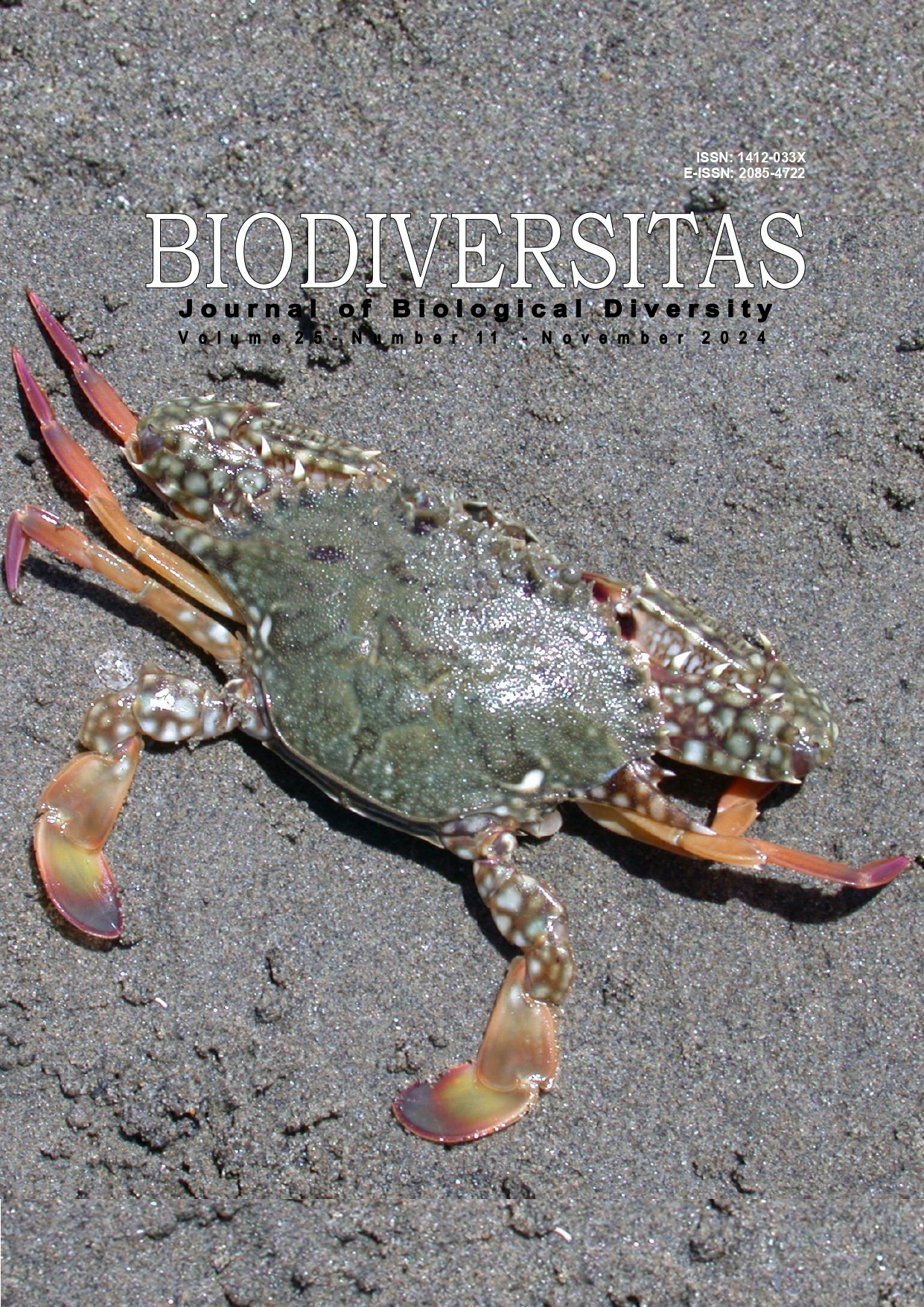Genetic variability and multi-trait selection of biomass and stalk juice for bioenergy in sorghum segregating populations
##plugins.themes.bootstrap3.article.main##
Abstract
Abstract. Dare D, Trikoesoemaningtyas, Wirnas D, Soepandi D. 2024. Genetic variability and multi-trait selection of biomass and stalk juice for bioenergy in sorghum segregating populations. Biodiversitas 25: 4425-4437. Sorghum (Sorghum bicolor (L.) Moench) is a promising crop for biofuel production due to its high sugar content in stem juice, which can be converted into bioethanol. However, the challenge for plant breeders developing bioenergy sorghum is creating superior genotypes with enhanced biomass-related traits. This study aimed to evaluate the genetic variability and multi-trait selection of biomass and stalk juice in sorghum segregating populations. A total of 320 F2 genotypes and six check genotypes were evaluated. Observed parameters included biomass-related traits and grain yield. Data analysis comprised gene action and genetic parameter estimation, Pearson correlation, path analysis, transgressive segregant estimation, multi-trait selection, cluster, and principal component analysis. The results showed high genetic variability for biomass-related traits, with coefficients of variation for fresh biomass and juice volume of 40.64% and 68.03%, respectively. Broad-sense heritability for these traits ranged from low (0%) to high (89.27) and was influenced by additive genes and complementary epistasis. All characters showed significant correlations with target traits, except for the Brix value. Direct selection for juice volume and fresh biomass weight can be achieved through stem weight. The transgressive index revealed high values, with transgressive segregants at 5.43% and 1.94%, respectively. Multi characters selection identified the 26 best genotypes for further testing.

